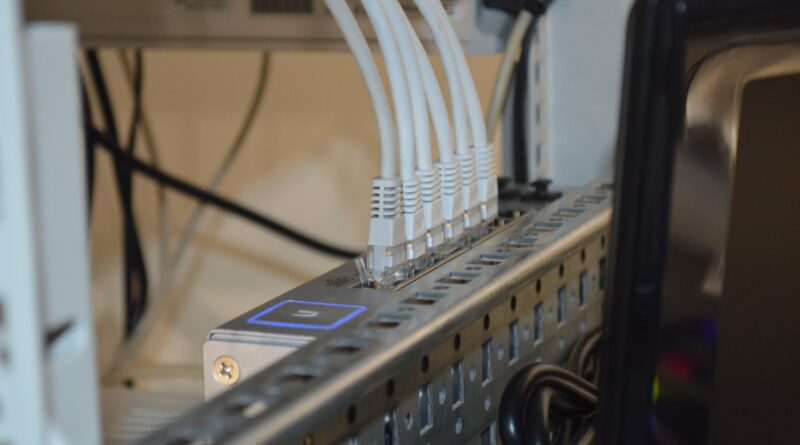Choosing the Best Internet Service for Your Business
JADCOM Media posts and/or links to retailers can be advertising, sponsored, or affiliate links.
We may earn a small commission from them. Thank you.
In today’s digital landscape, a reliable and efficient Internet connection is the lifeblood of any business. From video conferencing to cloud-based applications, everything hinges on seamless connectivity. But with a cacophony of internet service providers (ISPs) promising the world, choosing the right one can feel like navigating a labyrinth.
Choosing the best business internet service is a critical decision that can impact productivity, communication, and overall efficiency. In this article, we’ll explore key considerations to help you make an informed choice tailored to the unique needs of your business.
Importance of Business Internet Plans for Small Businesses
Choosing the right business internet plan isn’t just about going online – it’s like giving your business a boost for growth and success. Here’s why:
Increases Productivity
- Faster Speeds: Business internet plans are much quicker than regular ones, making downloads, uploads, and daily tasks much smoother. Imagine handling orders, sharing project files, and having online meetings without annoying delays.
- Better Efficiency: Your team can do more at once, work together easily, and use business tools without any hiccups. This boosts how much work gets done and cuts down on wasted time.
Make Customers Happy
- Reliable Connection: No more dropped calls during important talks with clients or website problems that hurt your online sales. Business plans make sure your internet stays on, keeping your customers happy and your business looking professional.
- Easy to Grow: As your business gets bigger, your internet needs to grow too. business internet plans make this easy, letting you upgrade how much internet you have to handle more customers.
Stand Out from the Competition
- Look Professional: Having a special business internet connection with a static IP address makes your business seem more professional. It builds trust and makes your brand look more reliable.
- Stay Safe Online: business internet plans with extra safety features like firewalls and data encryption. This keeps your important info safe and protects your business from online threats.
Be Ready for the Future
- Use the Cloud and Automation: Embrace new ways of doing business with online tools and automatic processes. Having reliable internet is key for these technologies, helping you work smarter and not harder.
- Get Ready to Grow: A strong internet setup sets you up for more growth and new ideas. You’ll be ready for new technologies and changes in the market without worrying about internet problems holding you back.
Investing in a good business internet plan is like putting money into your business’s future. It’s not just about how much it costs – it’s about the good things it brings, like more work getting done, happy customers, staying safe online, and being ready for whatever comes next. Choose wisely, and you’ll see your business do great things with the help of a strong and reliable internet connection.
Types of Internet Connections for Small Businesses
Digital Subscriber Line (DSL)
Digital Subscriber Line (DSL) is a broadband technology that uses existing telephone lines to deliver internet access. This makes it a widely available and cost-effective option for small businesses, particularly those located in areas where newer technologies like fiber optic might not be readily accessible.
Advantages
- Compared to other broadband options like cable or fiber, DSL offers competitive pricing, making it a budget-friendly choice for small businesses.
- DSL infrastructure is well-established, making it available in a wide range of locations, even in rural areas where newer technologies might be scarce.
- While not as fast as fiber optic, DSL offers consistent and reliable download and upload speeds suitable for basic web browsing, email, video conferencing, and light cloud usage.
Fiber Optic
Fiber optic technology transmits data using pulses of light through hair-thin glass or plastic strands. This cutting-edge method offers unparalleled speed, bandwidth, and reliability, making it the ideal choice for businesses with high internet demands.
Advantages
- Fiber internet access boasts download and upload speeds that dwarf other technologies, reaching up to a staggering 1 Gbps or even 10 Gbps in some cases. This translates to lightning-fast downloads, uploads, and data transfer, ensuring seamless streaming, cloud access, and real-time applications.
- As technology evolves and businesses require more bandwidth, fiber optic can easily accommodate increased data demands.
- The high bandwidth and low latency of fiber optic translate to flawless video conferencing and online collaboration. Voice calls are crystal clear, and video streams play without buffering or lag, enhancing communication and productivity.
Cable Internet
Cable internet leverages the same infrastructure as cable TV, delivering internet access through coaxial cables. This technology offers fast speeds and wide availability, making it a popular choice for growing small businesses.
Advantages
- Compared to DSL, cable internet boasts significantly faster download speeds, reaching up to 1 Gbps or more in many areas. This translates to quicker data transfers, smoother streaming, and improved productivity for online tasks.
- Many cable providers offer internet alongside TV and phone services in bundled packages. This can be cost-effective and convenient for businesses seeking a one-stop solution for their communication needs.
- Cable infrastructure is extensive, making cable internet readily accessible in urban and suburban areas. This gives businesses greater flexibility in choosing a location without worrying about limited internet options.
Fixed Wireless
Fixed Wireless is a broadband technology that delivers internet access via cellular towers, similar to your mobile phone, but with dedicated equipment for a stable and consistent connection. This makes it a perfect solution for small businesses in underserved areas or those seeking an alternative to traditional wired options.
Advantages
- Fixed wireless offers plug-and-play installation, making it ideal for remote locations or businesses seeking flexibility.
- Where cables falter, fixed wireless shines. This technology is often available in areas with limited access to other broadband options, like rural communities or even urban areas with patchy infrastructure.
- Depending on the location and network, fixed wireless can offer download speeds ranging from 25 Mbps to 1 Gbps, suitable for most small business needs, including video conferencing, cloud applications, and streaming.
Satellite Internet
Satellite internet leverages satellites orbiting the Earth to transmit and receive internet signals. This unique technology provides internet access even in remote and underserved locations where traditional landline options like DSL or cable might be non-existent.
Advantages
- Satellite internet requires no installation of cables or reliance on local infrastructure, making it readily available regardless of existing networks. This can be a significant advantage in remote areas with limited development.
- Unlike landline options limited by physical infrastructure, satellite internet offers connectivity virtually anywhere on the planet. This makes it ideal for businesses operating in rural areas, offshore locations, or even mobile environments.
- Once installed, satellite internet provides a continuous connection, independent of outages or disruptions that might affect landline services. This can be crucial for businesses requiring constant communication and online access.

Considerations for Selecting the Right Internet Service Provider
When selecting an Internet Service Provider for your business or home, several key factors should be considered to ensure you choose the most suitable service. Here are the crucial factors to keep in mind:
Know Your Needs
Ask yourself: What industry are you in? Creative agencies and data-driven startups have different bandwidth needs than a local bakery. How many employees rely on the Internet daily? More users mean higher bandwidth demand. What business-critical applications do you use? Cloud-based platforms, video conferencing, and heavy file transfers necessitate robust connections.
Speed and Bandwidth
Think of speed as the highway lanes and bandwidth as the width of those lanes. More lanes (higher Mbps) mean faster travel (data transfer), while wider lanes (higher bandwidth) allow for more vehicles (data) to travel simultaneously without traffic jams (slowdowns).
Connection Types
Different types of connections (DSL, cable, fiber-optic, satellite, etc.) offer varying speeds and availability. Research which type is most suitable for your location and usage needs.
Reliability and Uptime
Choose an ISP with a strong track record of uptime and minimal outages. Aim for 99% uptime or higher for a truly reliable experience.
Price and Value
Don’t just go for the cheapest option. Consider the overall value proposition, including speed, reliability, data caps, and bundled services like TV or phone.
Customer Service
When the internet hiccups, you need quick and effective help. Choose an ISP with responsive customer support channels like phone, live chat, and email.
Research and Compare
Don’t be afraid to shop around! Read online reviews, compare business internet plans from different providers, and ask for recommendations from friends and family.
Why Do Small Businesses Require A High Internet Speed?
Small businesses often require high internet speeds for several reasons, and the specific needs can vary based on the nature of the business.
High internet speed is crucial for small businesses as it facilitates efficient communication through email, instant messaging, and video conferencing, ensuring seamless connections with clients, customers, and remote team members. The ability to transfer and backup data quickly is essential for managing customer information and transaction records.
Small businesses often rely on cloud-based applications for operations, and high-speed internet enables smooth access to these services. Video conferencing for virtual meetings, e-commerce transactions, and digital marketing efforts is enhanced with a fast and reliable internet connection.
Additionally, high-speed internet supports collaborative work by enabling quick file sharing among team members, and it plays a vital role in providing prompt customer service and support through online platforms. In the era of remote work, a high-speed internet connection is crucial for maintaining productivity and competitiveness, allowing small businesses to leverage technology effectively in an increasingly digital business landscape.
Regularly checking your internet speed ensures that your business is equipped with the necessary bandwidth for these operations, helping identify and address potential connectivity issues proactively. Here are important terms business customers must know:
Download Speed vs Upload Speed
Download speed and upload speed are two crucial aspects of your internet connection, but they represent very different things:
Download speed refers to the rate at which your device receives data from the internet, essentially measuring how fast you can “pull” information down to your computer, phone, or other device. Think of it as downloading a movie, streaming music, or opening a web page. The higher the download speed, the faster these tasks will be completed.
Upload speed refers to the rate at which your device sends data to the internet, essentially measuring how fast you can “push” information up. Think of it as uploading photos to social media, video conferencing, or sending large files via email. The higher the upload speed, the smoother these tasks will be, with less lag or waiting times.
Which is more important?
It depends on your usage. Most typical online activities like browsing, streaming, and basic email involve mostly downloading data, so download speed is usually the more crucial factor for most users. However, if you upload a lot of content, video conference regularly, or work with large files, you’ll need a decent upload speed as well.
What Internet Speed Does Your Business Need?
Determining the right internet speed for your business depends on various factors, including the nature of your operations, the number of employees, and the type of online activities your business engages in. Here are some general guidelines to help you assess the internet speed requirements for your business:
Number of Users
The more employees using the internet simultaneously, the higher the speed you’ll need. Consider not only regular office tasks but also activities like video conferencing, which can require significant bandwidth.
Nature of Business Activities
Different businesses have different internet requirements. For example, graphic design, video production, and other data-intensive tasks may demand higher speeds compared to businesses primarily engaged in email correspondence.
Cloud Services and Applications:
If your business heavily relies on cloud-based services and applications, you’ll need sufficient bandwidth for smooth access and data transfer.
Video Conferencing
If your business conducts frequent video conferences or webinars, you’ll need higher upload and download speeds to ensure clear and uninterrupted communication.
File Transfers and Backups
Consider the frequency and size of file transfers and backups. Businesses dealing with large files or regularly backing up data may require higher speeds.
E-commerce Operations
If your business involves e-commerce, ensure that your internet speed can handle online transactions, inventory management, and customer interactions without delays.
Remote Work
If your employees work remotely, the internet speed at the office should be sufficient to support remote access, video conferencing, and other online collaboration tools.
Future Growth
Choose a business internet plan that can scale with your business to avoid the need for frequent upgrades.
Industry Standards
Some industries may have specific standards or recommendations for internet speed. Check if there are any guidelines relevant to your business.
Customer Service Requirements
If your business provides online customer service, ensure that your internet speed supports quick response times and a positive customer experience.
To determine your specific needs, consult with your internet service provider (ISP). They can provide insights based on your business requirements and help you choose an appropriate business internet plan.
Getting Started
Choosing the best internet service for your business is a strategic decision that requires careful consideration of your specific needs and the offerings of potential ISPs.
By evaluating factors such as speed, reliability, scalability, customer support, cost, security, and additional services, you can make an informed decision that lays the foundation for a robust and efficient online presence, contributing to the overall success of your business.

Frequently Asked Questions
Q: What’s the average internet speed for small businesses?
A: It depends on your specific needs! Typical ranges are:
- Basic needs (web browsing, email): 5-10 Mbps
- Moderate needs (video conferencing, cloud apps): 25-50 Mbps
- Heavy needs (streaming, large file transfers): 50-100 Mbps or higher
- Real-time applications (gaming, VR): 100 Mbps or higher (consider fiber optic)
Analyze your daily activities and data usage to choose the right speed for your business.
Q: How can I compare business internet plans?
A: Use online tools like BroadbandNow, HighSpeedInternet.com, or your local ISP’s website to compare speeds, prices, features, and user reviews. Consider factors like uptime guarantees, data caps, security features, and customer support options.
Q: Do I need to bundle the internet with a phone or TV?
Bundling can offer discounts and simplify billing, but evaluate if you need the bundled services. Prioritize internet features and speeds relevant to your business needs before deciding on bundles.
Q: Can I customize a business internet plan based on my specific needs?
Many ISPs offer customizable business internet plans to accommodate specific needs. Work closely with your chosen provider to tailor a plan that aligns with your business requirements, ensuring you get the most value from your internet service.
Q: Should I consider additional services offered by ISPs?
Depending on your business needs, additional services such as email hosting, domain registration, or business-specific tools may be beneficial. Evaluate whether these services align with your operations and could streamline your business processes.
Q: What should I look for in the terms of contracts and costs?
Review the costs associated with different plans, including installation fees and monthly charges. Examine contract terms, including durations and penalties for early termination. Choose a plan that aligns with your budget and offers flexibility as your business needs evolve.



